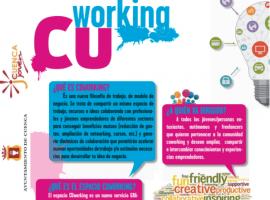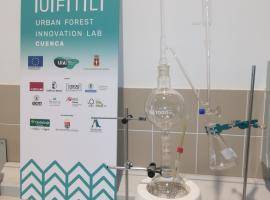In 2020, two major circumstances occurred. They need to be mentioned here as they modify the contextual conditions which were described in Journal N° 1. The first circumstance is the COVID-19 outbreak which started affecting EU countries since late January 2020. Similarly to many other projects, UFIL was impacted by the restrictions imposed by governments to fight the spreading of coronavirus. The second circumstance is the approval of overarching EU policies in the domains of sustainable development and environment as well as the policy response of the EU to the pandemic which suddenly made available to EU Member States an unprecedented amount of financial resources for recovery and resilience purposes.
1.1 COVID-19 impact on the project and the response capacity of UFIL
Which project put ‘a pandemic’ in its risk management plan?
A pandemic was not included among the potential risks identified in the project’s risk management plan. Indeed, this risk will find its place in the next revision of the plan. But for the time being, it is noted that the project reacted well to the new challenge although it is undeniable that COVID-19 importantly slowed down UFIL activities during 2020.
UFIL is implemented in Cuenca, a small-sized (about 55.000 inhabitants) city in the Autonomous Community of Castilla-La Mancha, in central Spain. The province of Cuenca is part of the so-called ‘Southern Lapland’ of Spain and has very low population density. Mountainous areas and forests characterise its territory and this has probably kept the Province relatively safe with respect to the incidence of COVID-19, at least during the first wave of the outbreak. Still, Cuenca and its Province were subject to the same restrictions and rules imposed by national and regional governments across Spain. And so was UFIL. The lockdown started on 13 March 2020. Some restrictions started being lifted only on 11 May 2020.
Impact of COVID-19 on UFIL and the project’s reaction
At this stage of project’s implementation, the core component of UFIL is the running of a forest innovation lab. The lab is hosted in a few large rooms of the Cuenca's campus of the University of Castilla-La Mancha. From the learning point of view, the lab is structured into a series of 3 residential courses, each lasting 10 months. During each course, theoretical and innovative learning is associated to practical and prototyping work. The lab is also a physical place where trainees (who are expected to become future entrepreneurs in the city and in its surroundings) interact with each other to design innovative services and products which are based on the forest resources of the Province of Cuenca. Co-creation and challenge-based competitions are at the basis of learning and innovation processes.
This interactive approach had obviously to be reviewed when in presence learning was no longer possible due to COVID-19 restrictions (see UFIL web article 2 for an update on this aspect). The project was lucky enough because in its original design it included the development of a web-based platform to be used for teaching activities in remote modality. This was meant to facilitate the input of some of the Madrid-based project’s partners involved in the lab’s teaching and coaching activities. After the imposition of the lockdown, it was then decided to transfer all the lab work to this platform. As a consequence, interaction among trainees and between trainees and trainers became 100% remote. This impacted very much the prototyping component of the learning process as trainees could not use the machinery and equipment of the lab. When government’s decisions allowed, the activities of the campus started again to be carried out in presence, with all the necessary precautions.
UFIL innovaton lab at the times of COVID-19

If the lab’s activity was disrupted (but not interrupted), restrictions caused by the pandemic did not allow to start the second course while the first one was still ongoing. Each course is designed to have 35 participants and the project’s facilities could in no way host simultaneously 70 people, while respecting distancing and other safety precautions. In practice, COVID-19 cancelled the possibility to overlap the residential courses as it was originally foreseen. As math is not an opinion, in order to run three courses the project will indeed need an extension. Accordingly, this request has been put forward to the UIA PS.
Other components which were affected by the pandemic relate to communication, reach out and awareness raising activities. During Year 2, several were the initiatives expected to take place on the ground such as public events, street marketing activities, rural dissemination workshops and rural-urban gatherings, but all these initiatives had to be cancelled because of the pandemic. The project developed a blog (www.uiacuenca.es/blog/) which is very informative but obviously insufficient to satisfactorily engage target groups.
2.2 Update on the policy context: important developments in 2020
The perfect match of UFIL objectives with latest EU political developments
Since last December 2020, the pivotal role of the EU in the policy domains of environment and sustainability has become very clear. Through its Green Deal, the EU takes the commitment to be carbon neutral by 2050. This implies the adoption of new legislation and funding mechanisms which touch upon a wide array of policy areas, including food and agriculture, nature and biodiversity, circular economy, green finance and industry as well as sustainable (clean) energy and transport. In fact, the EU Green Deal is a growth strategy for Europe and UFIL keeps on being fully aligned to this strategy as it aims to contribute to the creation of businesses and jobs which are innovative, resource-efficient and able to protect, enhance and conserve the city’s natural capital (i.e. its forests). The European Green Deal will have major implications for both the CAP and rural areas and a key aspect will be how rural areas will contribute to the Deal as well as to its related strategies (Farm to Fork, Biodiversity, Circular Economy, Climate Neutrality).
Since February 2020, an unprecedented amount of financial resources has been mobilised by the EU to support in the immediate the recovery of urban and rural areas. Support took the form of direct measures, of derogation from competition rules and of administrative flexibility. For example, a more flexible use of structural funds allowed the provision of loans and grants. Under the European Agricultural Fund for Rural Development, rural development programmes could be modified to use the unspent budget. A temporary framework for the use of state aid allowed the direct support of businesses in a variety of sectors, including forestry, and the SURE instrument mitigated and is still mitigating the negative impacts on employment.
In the near future, the consolidation of recovery and resilience capacity will occur through the Next Generation EU, an instrument expected to mobilise billion of euros (€ 750 billion, to be precise) on the financial markets, and through a strengthened (in financial terms) Multiannual Financial Framework 2021-2027. All these conditions translate into concrete opportunities, especially for initiatives like UFIL which aim to create business development in the medium-to-long term. These opportunities shall be seriously taken into account when framing the project’s sustainability scenario (see web article 2).
2.3 Where does the project stand at the end of October 2020?
UFIL is a three-year project started on 1/11/2018. The kick-off of the project was slow and fewer outputs than expected were harvested during its first year of implementation. These outputs are discussed in UFIL Journal N° 1 together with reasons behind delays. As expected, during Year 2 the project successfully built over the lengthy preparatory work made in Year 1. Still, the project was less effective than planned in implementing its work packages. The COVID-19 outbreak had a role in slowing down implementation and in cancelling some of the planned activities, but some implementation weaknesses may have contributed as well. Slow overall progress is reflected in the underspending of the budget (i.e. less than one third of the total project amount).
In Year 2, the core of the project’s work shifted to implementation, and in particular to Work Package 4 ‘Knowledge and spatial framework design’ and Work Package 5 ‘Urban Forest Job and skills’. These are the two WPs related to the functioning of the innovation lab.
UFIL journeys for trainees

Another important feature in Year 2 is the active involvement in implementation of all project’s partners – this is an important and positive change compared to Year 1 when an unbalanced participation among partners was noted.
In brief, some of the milestones achieved during Year 2 include:
- Significant progress was made in the procurement process of equipment and services.
- The study on forest bioeconomy opportunities (which is set at the basis of the learning material provided to trainees) was released.
- The user journeys for trainees (see figure above) were defined.
- Training staff and business coaches were selected and trained.
- The first training course started and was ongoing throughout the reporting period.
- Two business challenges (see UFIL zoom-in 1 for details on this learning method) were launched.
- Incubation/acceleration of businesses designed by trainees started in July 2020.
- Communication activities kept on being performed, especially through the project’s blog.
- A framework agreement for cooperation was signed between the project and the bank GLOBALCAJA.
There are components of the project which suffered from delays. These include the involvement of the business community in project’s activities and the embedding of the project in the city and in the surrounding rural areas. As mentioned, COVID-19 played a role in these delays. Reasons behind and solutions implemented by Cuenca's urban authority are discussed in the following section.



































